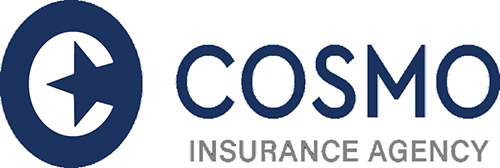
Are you a business owner looking for health insurance but could never enroll because of participation requirements? No worries; your group qualifies for a Special Enrollment Period (SEP). Yes, you read that correctly.
Open Enrollment is a yearly period when individuals/families and businesses can enroll in a new health insurance plan or make changes to their existing plan. In most states, Open Enrollment runs from November 1 to December 15, but New Jersey has extended the deadline to January 31, 2021. However, business open enrollment is from November 15 to December 15 for a January 1, 2021 effective date.
Technically, you need 75% of your employees to opt into a group health insurance plan, but during the open enrollment, that requirement is waived, and you may enroll even if only one person is insured. The SEP’s main requirements for your business are that you have at least one W-2 employee on the plan, besides the owner and the spouse of the owner.
Business Checklist Compliance
To prepare for open enrollment, businesses should be aware of the legal changes affecting their plans’ design and administration for plan years beginning on or after January 1, 2021. Employers should review their plan documents to confirm that they include these required changes.
Confirm that your group health plan’s out-of-pocket maximum complies with the Affordable Care Act (ACA)’s limit for 2021. Under the ACA, an applicable large employer (ALE)’s coverage is considered affordable if the employee’s required contribution to the plan does not exceed a certain percentage of the employee’s household income for the taxable year. For plan years that begin on or after January 1, 2021, the affordability percentage is 9.83%.
Confirm that the health insurance plan’s deductible and out-of-pocket maximum comply with the 2021 limits. Health plans are subjected to limitations on cost-sharing for essential health benefits. The annual limit on cost-sharing for essential health benefits for plan years beginning on or after January 1, 2021, is $8,550 for self-only coverage and $17,100 for family coverage. This doesn’t mean you have to choose a plan with these maximum out-of-pockets.
Preventive care services are required to be offered without imposing cost-sharing requirements. Also, the ACA sets a dollar limit on employees’ salary-reduction contributions to a health flexible spending account (FSA). Employers may impose their own dollar amount on employees’ salary-reduction contributions to a health FSA account, as long as the limit does not exceed the ACA’s maximum limit in effect for the plan year. The IRS has not yet announced the limit for 2021 plan year for FSAs.
Lastly, provide all participants with a summary of their benefits and coverage (SBC). The ACA requires employers to provide an SBC to applicants and enrollees to help them understand their coverage and make coverage decisions. Employers must provide the SBC to participants and beneficiaries who enroll or re-enroll during an open enrollment period.
The Bottom Line
In any case, don’t just sit back and swallow a premium increase. There may be better plans for you out there today, with benefits that better suit your needs, a better provider network and/or more competitive premium.
A little time and effort now can make a great difference throughout the next year, both financially and with the quality of your healthcare. Just give Cosmo Insurance Agency a call. We will simplify the process for you!
Mark Herschlag CEO of Cosmo Insurance Agency, which is based in Ocean County. Cosmo Insurance Agency offers personalized solutions for individuals and businesses looking to obtain health, life, dental, long term care or disability insurance.For more information or for a free, no-obligation quote, please call (201) 817-1388 or email info@cosmoins.com.










